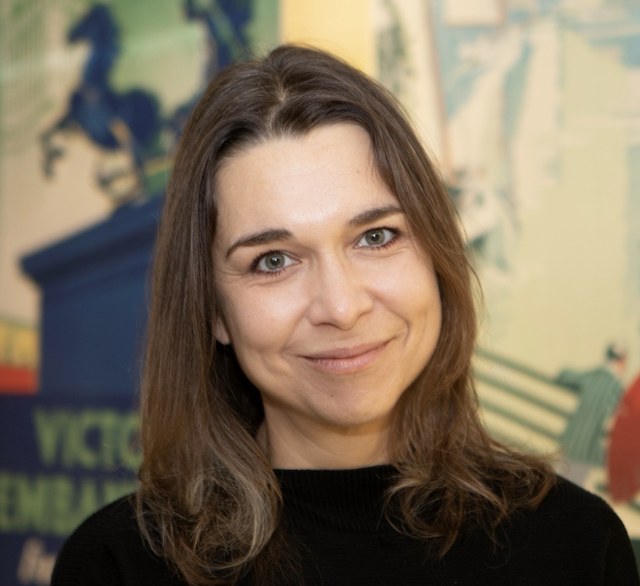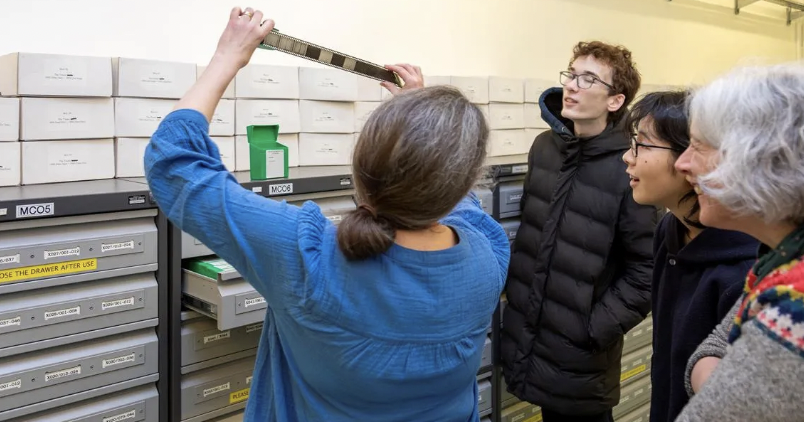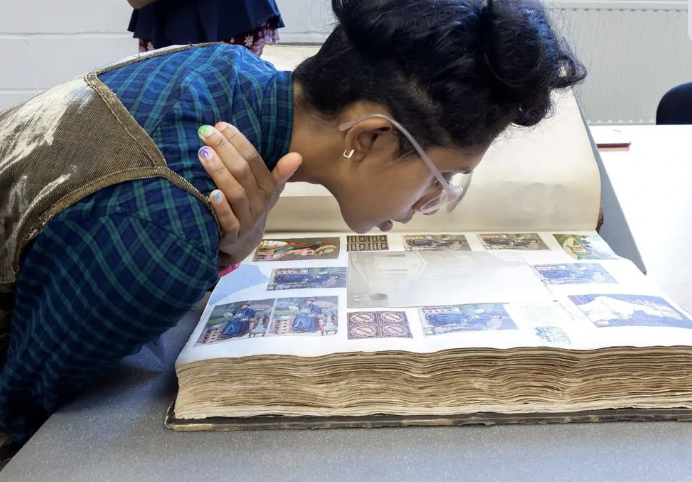Post
The London Archives: Rebrand attracts new visitors to explore its past and present treasures
15 Aug 2024
In a quiet corner of Clerkenwell is a vast repository of information about London, the earliest dating from 1067 in its strong rooms. There are more than 72 miles of records, charting the development of the capital up to the present day. Formerly known as the London Metropolitan Archive, this store of London information was renamed the London Archives on 5 August.
Subscribe to the London Society newsletter
Emma Markiewicz has been the London Archives director since 2022, having previously worked at The National Archives (TNA) based in Kew, south-west London for 15 years. The director spoke to the London Society about plans and ambitions for the archive.
Why did you decide on the name change?
Our aim was to welcome more visitors. When you come in, there’s a lovely backdrop of London images from our collections. We wanted to say everyone is welcome here. We want to invite more people from different sorts of backgrounds and interests. We've got so much stuff that everyone is interested in.
How did you find out what people wanted?
We did a big piece of audience research. We spoke to 2,500 people from a 20-minute radius of the building. People who were interested in getting out and about, visiting cultural places.
Was there some misunderstanding of what the archive does?
Through our research findings, some people thought we were the archive of the Metropolitan Police, the London Underground, or a university archive. We felt that it was a bit of a no-brainer to drop the word metropolitan.
How far do you go in trying to please everyone?
We don't want to morph into being essentially a public library, or, on the other hand, a museum. So now we’ve a new website. We can use it to provide information and help people find us We're using it to describe what's in the immediate local area. If you walk for five minutes from here, what can you find? Or if you walk for half an hour, what can you find?
We’ve created new display areas to show iconic documents and treasures and so on. We also want to encourage students to come here with their laptop. And we're introducing more soft furnishings and more comfortable environment. Family historians can also come together.
How are you bringing in different types of audiences?
The archive has always been a pioneer. They were one of the first to start an LGBTQ programme. The annual conference celebrated its 20th anniversary a couple of years ago In my time, we have definitely seen diversification of our audiences, We had the Unforgotten Lives exhibition at London Metropolitan Archives, about the stories of Londoners of African, Caribbean, Asian and Indigenous heritage. The Lost Victorian City includes information on Victorian workhouse diets.
We will be developing our public offer with a new schools’ programme relaunching in 2025, with a new events programme from September, offering the public the opportunity to engage with the archives including lunchtime and evening programming.


